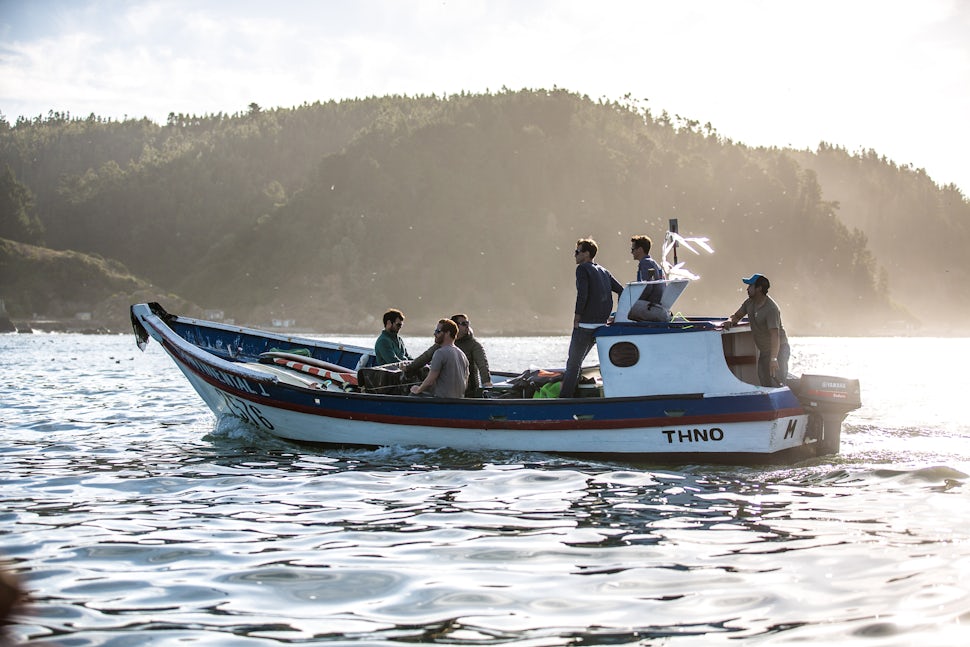These Outdoor Brands Are Working to Reduce Plastic Waste in Our Oceans
"We're drowning in plastic. From microplastics to single-use bags and straws, over 18 billion pounds of un-recycled plastic ends up in the ocean each year."

It's no secret that we have a problem with plastic in our society and it's widely known that a ton of our plastic waste goes into the ocean. I don't know about you, but every time I receive a new piece of gear in the mail I'm simultaneously filled with excitement for the new product and a little bit of disgust with the amount of packaging waste that comes with it. And since I open the package at home just a few hundred yards from the Pacific Ocean, it stings just a little extra knowing that so much of the plastic waste I've disposed of in my life has likely gone directly into it.
Now, I'm not perfect when it comes to recycling or reducing my single use plastic footprint (I'm far from it) so I'm not here to preach about changing your lifestyle or to come down on any single brand for wasteful packaging. Right now, it's a systemic problem, but a few outdoor brands and conservation organizations are making a serious effort to change the system.
At the Outdoor Retailer Summer Market 2018 just a couple weeks ago, I sat in on a discussion with representatives from the following companies and organizations working towards plastic waste reduction solutions in the outdoor industry. Here's a quick rundown of their thoughts and just a few ways they're working to make a positive change.
Costa / Bureo Collaboration: The Untangled Collection
Fishing nets account for an estimated 10% of all plastic waste in the ocean and are four times more harmful than many other forms of plastic ocean waste. Bureo and Costa have teamed up to create high-quality sunglasses, the frames of which are 100% made out of recycled fishing nets.
Bureo's founding team knew they couldn't solve the entire ocean plastic waste problem at once. Their solution is to solve one, dumped fishing nets. They now work with 26 communities across Chile to collect and recycle unwanted fishing nets and recycle them into a wide range of products. See this page to see more of their brand partners including Patagonia and Futures Fins.
Dakine
Ken Meidell is Dakine's new CEO (two years on the job) and has made sustainability a core focus. He's assigned some 35 employees to be part of their internal sustainability team to work on creative solutions to sustainability issues across Dakine's business. Dakine uses materials from recycled plastic water bottles in many products and is working on several other ways to reduce the impact of their products.
Dakine has learned that sponsored athletes can have a major influence on brand's sustainability practices. John John Florence (the current surfing world champion) demanded zero plastic use in the packaging of his signature products. Dakine delayed getting his products on the shelves by four months in order to meet the demands made by Florence.
United By Blue
United By Blue has a simple and effective mission: for every product sold, United By Blue removes one pound of trash from our world's oceans and waterways. They sell their own beautiful designed clothing and accessories, as well as products from your favorite brands like Kelty, Yeti, and many more.
As part of their mission to clean up the ocean, they organize hundreds of beach clean ups all over the country. Find one near you here!
5Gyres
Named for the 5 sub-tropical gyres (AKA massive surface current systems) that carry plastic all around the world, 5Gyres mission is to "empower action against the global health crisis of plastic pollution through science, education, and adventure." They work on large-scale scientific studies and research expeditions and international movements and alliances to combat plastic waste issues.
They also empower people to take action at the level that is feasible for them. Check out their FAQ page the learn more about their organization, why you should care about plastic waste in the ocean, and the different ways you can reduce your plastic ocean waste.
At the end of the discussion at OR, the panel was open for questions. Here are some of the highlights:
How can people get engaged?
For outdoor industry folks:
- Ask questions of suppliers, demand sustainable practices in production of your product.
- Ask your team what sustainability issues they’re passionate about and follow that path.
- Tell stories that connect with people on an emotional level and reach as many people as you can with your story. Data is powerful, but can be overwhelming. Brands and leaders that tell good stories will result in real change.
For everyone:
Do something big: Research organizations that are moving the needle and support them however you can.
Do something small: Ask for no straw at the bar, attend a beach cleanup, etc.
Don’t beat yourself up for not being completely plastic free. Make small changes when you can and keep working.
Vote with your wallet by supporting brands and organizations committed to the cause.
Resources for learning more:
Marcus Erickson, book Junk Raft
Where to find a list of brands committed:
We want to acknowledge and thank the past, present, and future generations of all Native Nations and Indigenous Peoples whose ancestral lands we travel, explore, and play on. Always practice Leave No Trace ethics on your adventures and follow local regulations. Please explore responsibly!
Do you love the outdoors?
Yep, us too. That's why we send you the best local adventures, stories, and expert advice, right to your inbox.











